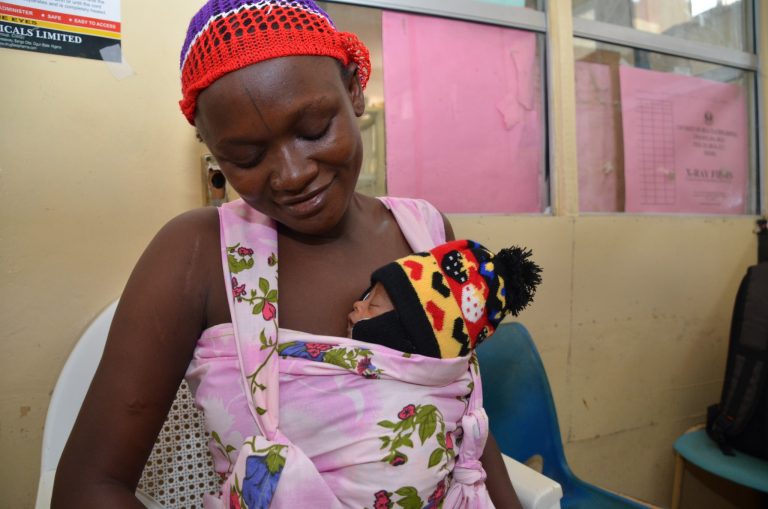72 participants from countries all around the world, arrived at the Kangaroo Mother Care workshop in South Africa which was held between March 11 – 13th, representing countries such as Australia, Bangladesh, Ghana, Iran, Malawi, Namibia, Sweden, South Africa and the United States. The objective of the workshop was to share experiences across professions and countries, while also learning lessons of successful practices in the implementation of Kangaroo Mother Care.
Session one included a call to action presentation from South Africa, an update and global perspective on the Every Newborn Action Plan (ENAP), and a summary of current evidence and ongoing research on KMC. Following South Africa’s presentation, Sweden highlighted opportunities for change in the implementation of KMC and how it can prove to be impactful. A presentation on quality of care and training highlighted that while KMC is not a cheap alternative, it is an evidence-based effective intervention for high income countries and tertiary level care as well. As the workshop proceeded, Bangladesh, Ghana and South Africa highlighted overcoming challenges in implementing KMC on a large scale. Suggested opportunities included KMC lessons from 5 Bangladeshi districts and establishment of a KMC unit with intermediate care facilities in Ghana and the Dr RSM District, North West, and also KMC quality improvement in KwaZulu-Natal, South Africa.
Participants then divided into groups and deliberated on barriers and enablers of KMC implementation, training and mentoring in KMC implementation on a large scale. The groups proceeded to discuss lessons from different contexts and changing the working culture in health facilities, experiences of scaling up KMC and also integrating KMC into the health system
Take home messages:
• Saving newborn lives: a call to action, maternal care directly impacts newborn outcome; strengthening health systems and data collection/collation
• Potential to save lives: nearly 3 million newborn lives could be saved by investing in quality antenatal care and increasing access to emergency medical services (EMS)
• Multiple partnerships need to be founded and the power of parents, family, and community need to be reinforced
• KMC is essential to preterm outcome; it is considered a gold standard and should be implemented in high level health facilities where it will then be initiated to lower level facilities and eventually to home for follow-up and continued care
• Robust monitoring and evaluation, using audit regularly to improve quality are needed
• The mother’s health and comfortability are important so the KMC units should be respectful, friendly, supportive, engaging of fathers, and held responsible for providing a family led care facility that empowers health care providers and as well as families
• Teen pregnancy and teenage mothers need more support
• Refugee newborns are part of our world population and also need urgent attention

Following the KMC workshop meeting, the 37th Conference on Priorities in Perinatal Care in South Africa was held from March 13-16th, 2018. The meeting was attended by many experts in the field of perinatology and a range of health professionals involved in maternal and perinatal health. These experts traveled from universities, urban and rural areas of South Africa, Europe, and America; with representatives from WHO and UNICEF present as well. The scientific sessions were in the areas of monitoring, morbidity in neonates, better antenatal care, auditing births, and aiming for better maternal outcomes. There were keynote addresses by experts in the field on the topics of parenteral nutrition and its complications in neonatal care, nutritional requirements and enteral feeding of preterm and term infants, prematurity and adult cardiovascular health and addressing unresolved issues in intrapartum care.
Other topics included lessons from WHO Better Outcomes in Labour Difficulty (BOLD) Projects, antenatal care for a positive pregnancy experience – from evidence to implementation for a strengthened health system, improving quality of maternal and neonatal health with a focus on experience of care – evidence synthesis, and research and measurement.
Key take home messages:
• Preterm birth before 30 weeks of gestation should be considered a nutritional emergency, babies born <1,000g will become deficient in essential fatty acids in the first 2 days of life, amino acids stimulates insulin secretion in preterm births and early amino acid (AA) use is associated with a lower incidence of hyperglycemia and increasing early glucose and early AA intake simultaneously does not increase risk of hyperglycemia
• A mothers breastmilk is essential; start on first day of life and increase by 30ml/kg/day regardless in size of gestation
• Late preterm (34-36 weeks) and early term (37, 38 weeks) infants are vulnerable and should not be delivered as non-indicated caesarian delivery (provider initiated/influenced)
• Antenatal steroids may not protect late preterm infants of low risk pregnancies against pulmonary complications necessitating invasive support and may create a false sense of security related to “maturity” (long term brain effects)
• Guidelines that aim to protect the “optimal” duration of intrauterine existence (39 weeks) in low risk pregnancies should be respected and adhered to
NICU stay does not compensate for the days/weeks lost that should have been spent in utero
• Regarding the long-term effect on cardiac health, it was noted that being born prematurely is a risk factor for reduced cardiac function, and is noted as early as twenty years of age
• Premature birth, including late prematurity, should be avoided if possible to preserve the cardiac health of the future generation (in some health sectors of South Africa, half of late preterm births may be for non-medical reasons)
